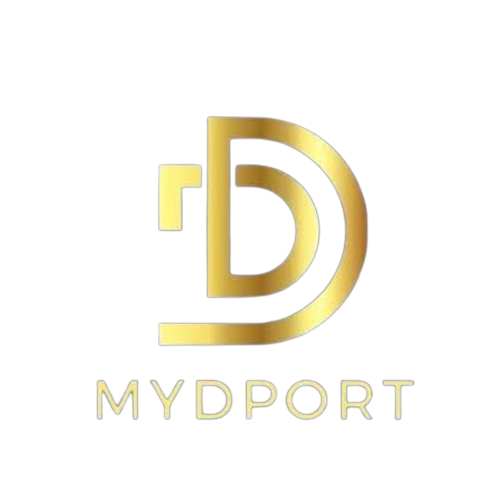Below is this year WAEC syllabus for IGBO 2024, Free live WAEC IGBO Syllabus questions papers. Please note that this syllabus is for both internal and external candidates
IGBO WAEC SYLLABUS EXAMINATION (2024/2025)
Aims and Objectives:
- Enable candidates to speak, read, and write Igbo proficiently.
- Familiarize candidates with Igbo language's sound system, grammatical structures, and cultural aspects.
- Expose candidates to Igbo culture, including customs, institutions, and worldview.
- Equip candidates with skills for creative writing and an appreciation of Igbo language and literature.
Scheme of Examination:
PAPER 1:
- Duration: 1 hour
- Marks: 60
- Sections: A, B, and C
- Section A: Language
- Comprehension (2 passages)
- Composition/letter writing
- Sound system
- Grammar
- Translation
- Section B: Literature
- Basic Principles of Literary Appreciation
- Oral Literature: Prose, Poetry, Drama
- Written Literature: Prose, Poetry, Drama
- Section C: Culture
- Customs
- Institutions
- Section A: Language
PAPER 2:
- Duration: 2 hours
- Marks: 100
- Sections: A, B, and C
- Section A: Language
- Composition/Letter Writing
- Sound System
- Grammar
- Section B: Literature
- Oral Literature
- Written Literature
- Section C: Culture
- Institutions
- Section A: Language
Paper 2 Details:
- Candidates must answer six out of thirteen questions.
- Section A: Essay
- Composition/Letter Writing: Topics include Narrative, Descriptive, Argumentative, Expository, Dialogue, Debate, and Letter Writing.
- Sound System: Questions on Igbo Phonemes, Syllable Structure, Sound Processes, Tone, Igbo Alphabet.
- Grammar: Spelling rules, Word formation, Igbo dialects, Loan words, Word classes, Grammatical categories, Phrases and Clauses, Sentences, Lexis, and Structure, Punctuation marks.
- Section B: Literature
- Oral Literature: Questions on Definition, Characteristics, Classification, Functions, Literary Devices, Folktales, Anecdotes, Legends, Myths, Poems, Songs, Proverbs, Riddles, Chants, Oral Drama, Tongue twisters.
- Written Literature: Questions on various aspects of Igbo life and culture, including Njirimara ndị Igbo, Ekele ndị Igbo, Mmemme, Nnabata ọbịa, Ọmụmụ nwa, Nkwenye, Emume, Egwuregwu, Nsọala/Arụ, Institutions, Echichi, Abamaba, Akaọrụ, and more.
End of Igbo Syllabus:
- Njirimara ndị Igbo: Aspects of Igbo identity, traditions, and practices.
- Ekele ndị Igbo: Expressions of gratitude among the Igbo people.
- Mmemme: Traditional Igbo festivals, customs, and rituals.
- Nnabata ọbịa: Igbo worldview and beliefs about the afterlife and spiritual realm.
- Ọmụmụ nwa: Upbringing and initiation rites of Igbo children.
- Nkwenye: Rituals and practices related to marriage and family life.
- Emume: Agricultural practices, harvest celebrations, and festivities.
- Egwuregwu: Performance arts and entertainment in Igbo culture.
- Nsọala/Arụ: Traditional medicine, divination, and spiritual practices.
- Institutions: Social structures, roles, and organizations within Igbo society.
- Ewumewu: Traditional governance systems and community leadership.
- Echichi: Naming ceremonies and rites of passage in Igbo culture.
- Abamaba: Religious practices, beliefs, and ceremonies.
- Akaọrụ: Economic activities, crafts, and trades among the Igbo people.
- Ewumewu ofufe: Traditional justice systems and conflict resolution mechanisms.
- Ngwa ofufe: Agricultural tools, techniques, and agricultural deities.
- Ihe ofufe: Sacred sites, shrines, and spiritual landmarks in Igbo culture.
Recommended Texts For Wascce Igbo:
| Year | Type | Title | Author |
|---|---|---|---|
| 1981-83 | Oral | Qmalinze Abx Na EgwuregwuQd[nala | |
| 1987 | Oral | Abx Na EgwuregwuQd[nala | |
| 1988 | Written | Obiefuna AkpaUche AkxFechaa | |
| 1990 | Written | Xwad[egwu Nkemakqlam Obidiya | |
| 2002-2005 | Oral | Qmalinze Abx Na EgwuregwuQd[nala | |
| 2011-15 | Oral | Mbediogu Abu Na Egwuregwu |
List Of Igbo Texts For Consideration: 2026-2030
| Title | Author |
|---|---|
| Juo Obinna | Tony Ubesie |
| Otu Mkpisi Aka | JC Maduekwe |
| Akonuche | Inno Uzoma Nwadike |
| Abu Ndi AHoputara (Selected Poems) | |
| Ochịchị | |
| Onye Ndu | |
| Nne Oma | |
| Oke Ochichọ | |
| Asila M Na O Dị Mma | |
| The Uwa | |
| Jiri Nwayoo | |
| Eziokwu | |
| Mma | |
| Nwaanyi | |
| Aja Ala | |
| Aal Igbo | |
| Ndụ MNuwa A | |
| Oji | |
| Uwa Emebighi | |
| Amamihe | |
| Ndu Nwaanyi | |
| Nna MOgoenyi | |
| Uloakwukwo | |
| Akwa Nnabuenyi Ugonna Bere | |
| Mbe Agaba | F. O. F. Onwudufor |
| Abụ Agurunony Ndi Igbo | G. I. Nwaozuzu |
| Abu Ndi A Hoputara (Selected Poems) | |
| Utụ Chara N’elu | |
| Otu Ibiri | |
| Nnabe Akuwaala Akwa Okwa | |
| Onye Kugburu Nwankelu | |
| AgbagbuoMNwannunum- 0 | |
| Onye Kọo Ji | |
| Anyi Agawa Mba | |
| Nnabe Agawa Nga Ebuleako | |
| O SaraAnya | |
| Mgbe O Suru | |
| Alụo MDi Poliis | |
| A Dị Ndụ | |
| Ndi Biara lje Unu Were Ekele | |
| Eluwa Bụ Olili | |
| Nwa Amaka | |
| Egwu Orimando | |
| Ihe Dị Mma | |
| 0 Rule, O Rule | |
| Ma Q Bụghị Ma Nwa | |
| Onye Wụ Engi Onwụ? |
Download the full PDF of the Igbo Waec Syllabus or read it as text below.
WAEC SSCE Igbo Syllabus PDF View:
Tags:
WAEC Syllabus

